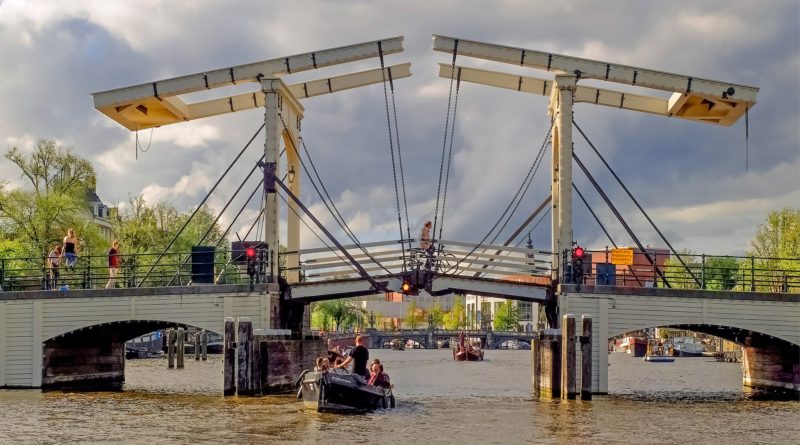Britons in the Netherlands go to court to remain EU citizens, again
While Theresa May was trying to convince the UK parliament to vote for the Brexit deal she negotiated with the European Union, four Britons in the Netherlands were fighting in a Dutch court to remain EU citizens. Theresa May did not meet her objective, as the parliament voted down the agreement by 432 votes to 202 this week. But British in the Netherlands may still succeed.
Their case was heard by a court in Amsterdam on January 14. Represented by legal firm Bureau Brandeis, they argued that EU citizenship is an acquired right that cannot be revoked under international law.
Every person with the nationality of a EU member state automatically gets EU citizenship. By consequence, the European Commission and EU governments have repeatedly said that when the UK leaves the EU, UK nationals will lose EU citizenship and the rights associated to it.
The claimants argue, however, that EU citizenship cannot be taken away at the blink of an eye. Their focus is specifically on Britons who have exercised free movement rights in the EU and now risk losing them, with or without a Brexit deal. They want to continue working, studing and moving across the EU, as they have done since they chose to leave their country.
Second case in Dutch courts
The case follows a similar legal challenge launched a year ago by the same legal firm. “Both cases are based on Article 20 of the EU Treaty, which grants EU citizenship to nationals of EU member states,” explains Jacob van de Velde of Bureau Brandeis. “The Treaty does not say what happens if a country leaves the Union. We want the Court in Amsterdam to ask the Court of Justice of the European Union to clarify.”
1. Citizenship of the Union is hereby established. Every person holding the nationality of a Member State shall be a citizen of the Union. Citizenship of the Union shall be additional to and not replace national citizenship.
2. Citizens of the Union shall enjoy the rights and be subject to the duties provided for in the Treaties. They shall have, inter alia:
(a) the right to move and reside freely within the territory of the Member States;
(b) the right to vote and to stand as candidates in elections to the European Parliament and in municipal elections in their Member State of residence, under the same conditions as nationals of that State;
(c) the right to enjoy, in the territory of a third country in which the Member State of which they are nationals is not represented, the protection of the diplomatic and consular authorities of any Member State on the same conditions as the nationals of that State;
(d) the right to petition the European Parliament, to apply to the European Ombudsman, and to address the institutions and advisory bodies of the Union in any of the Treaty languages and to obtain a reply in the same language.
These rights shall be exercised in accordance with the conditions and limits defined by the Treaties and by the measures adopted thereunder.
In last year’s legal action, the Amsterdam court decided to refer the matter to the European court. But later it accepted the Dutch government appeal, which contended that the question was “vague” and concerned only hypothetical situations given that Brexit negotiations were still ongoing.
This time the case is supported by more evidence. The complaint refers specifically to the Dutch government communications to British nationals in the Netherlands.
In preparation for Brexit, the Immigration and Naturalisation Service (IND) has updated its web pages and the government has sent a letter to some 45,000 UK citizens inviting them to apply for a new residence permit. Both the website and the letter state that British nationals will no longer be EU citizens as of 29 March 2019.
An example of the IND letter:
“We argue that the Dutch government has provided incorrect information to citizens about their rights and we demand a clarification from the European Court of Justice on whether people can be stripped of their EU citizenship,” says van de Velde.
According to the website Dutch News, lawyers defending the Dutch state have responded that the case should be referred to an immigration court and that the only “damage” caused by the change of status would be an obligation for Brits to follow language courses.
“Collateral damage”
Among the plaintiffs, Stephen Huyton is a businessman who already took part in last year’s case. He complains that without free movement rights, British residents in the EU are left to grapple with 27 different interpretations of EU rules. This could have economic consequences for his textile business. “The problem is that we don’t know, and no one can tell because we do not know the new deal,” he says.
Originally from Lancashire, Huyton moved to the Netherlands 25 years ago. He settled with his family in Amsterdam and run businesses with operations across Europe.
Now his daughter and two sons, all adults, have decided to take Dutch citizenship, even though the Netherlands is one of the EU countries that allows dual nationality only in limited cases. They will have to give up their British passport and face tough immigration rules if they will move to the UK one day. “We enjoyed the multicultural identity that Europe offers. My children consider themselves more Dutch and they do not want to lose the opportunity of free movement in the EU,” he told Europe Street.
As Brexit forces hard choices on people, Huyton complains that the Brexit talks have been “very poor” for both British living in EU countries and EU nationals in the UK. “There are a lot of issues with Brexit negotiations. But most of all, there has been no consideration for the lives of the 5 million of us, British in the EU and EU nationals in the UK. We are just considered collateral damage,” he says.
A decision by the Amsterdam court may not solve all problems. But if the case is taken to the European Court of Justice, there could be implications for all British citizens living in EU countries. The ruling in Amsterdam is expected on February 4.
Claudia Delpero © all rights reserved.
Photo via Pixabay.




